Jasmine Birtles
Your money-making expert. Financial journalist, TV and radio personality.

Want to save a few hundred pounds a year and help conserve a scare resource? Want to give less of your money to a big company and keep more yourself? Simple! Just think about water. And specifically, think about getting a water meter.
During the cost of living crisis, water bills are rising alongside other household bills. While you can’t choose the supplier of your water, there may be a few things you can do to reduce your water bill and save money.
If you’re on a low income (usually under £19,000 household total income, but check with your supplier), you could qualify for something called a social tariff. These are not broadly advertised but every water supplier must offer one and it is a reduced rate for low income households. Other schemes are called cap schemes, which limit the total amount you can be charged for your water.
A water meter can help smaller or low usage households save a significant amount of money on their water bill. One of our MoneyMagpie team managed to take their quarterly bill down from over £200 to just £45 – that’s a whopping annual saving of around £600, and that’s not an unusual case study!
Water meters measure the exact amount of water your household uses instead of estimating it based on factors like the size of your home. You might, for example, still live in your four-bed family home but now alone or as a couple as the children have grown up. Your water usage will be significantly reduced, but the water bills stay the same on an unmetered rate.
Anyone can request a water meter, but a general rule of thumb to know if it is a good idea for your household is the occupant ratio. If you have fewer people than bedrooms in your home, a meter is quite likely to save you money.
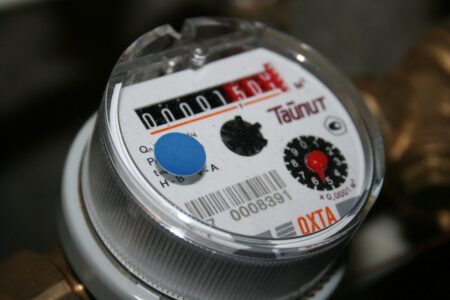
Your supplier will arrange for someone to visit your property to make sure a meter can be fitted, which is the case except in highly exceptional circumstances. If they refuse, because it is too difficult or expensive to fit a meter at your property, they MUST offer you an assessed charge rate instead.
Renters can have meters put in, too. It’s polite to ask your landlord first but they are not allowed to refuse.
A household can change back to an unmetered rate within the first 12 months, but then the property remains on a meter after that period.
If someone in your household uses a lot of extra water due to a disability, you may qualify for extra financial help towards your water bill. Similarly, if there are three or more children living full-time at the property, you can apply for a cap to your bill which means you won’t pay over the average price of a bill for your property size even if you use more water.
WaterSure is the scheme you need to look out for on your supplier’s website to find out more.
There are lots of ways you can reduce your household water usage, which is not only great for the environment but also your wallet! Follow these tips to save water and save money.
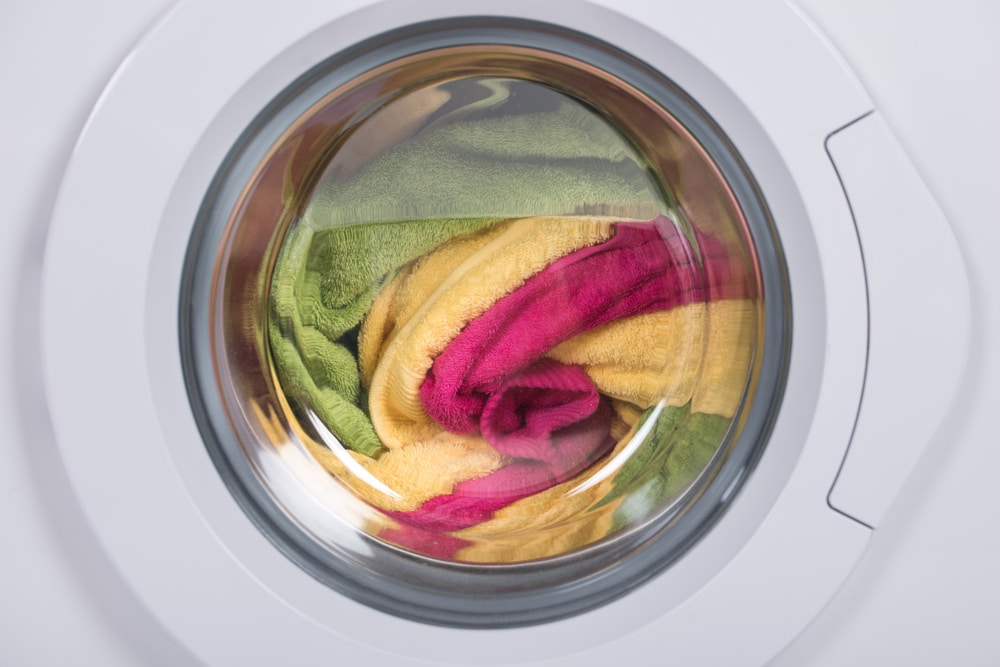
On average, one washing machine cycle uses 19 gallons of water. The average household runs between 5 and 6 loads per week, which adds up to 5,605 gallons of water per year.
So, if you wash your clothes only when necessary you can save water and reduce your electricity bills. If you were to drop down to just 4 loads a week, you’d use over 1500 less gallons of water a year.
Half loads are very inefficient so if you’re a small household, wait until you’ve enough for a full load. Of course, if you’ve got children you’ll probably have no problem filling up the washing machine!
You might want to consider washing your clothes at 30 degrees instead of 60 degrees too. Higher temperatures use more energy, so it’ll cost you in the long-run. Pre-soaking overnight can help to loosen a lot of dirt and stains and make the wash cycle more efficient too.
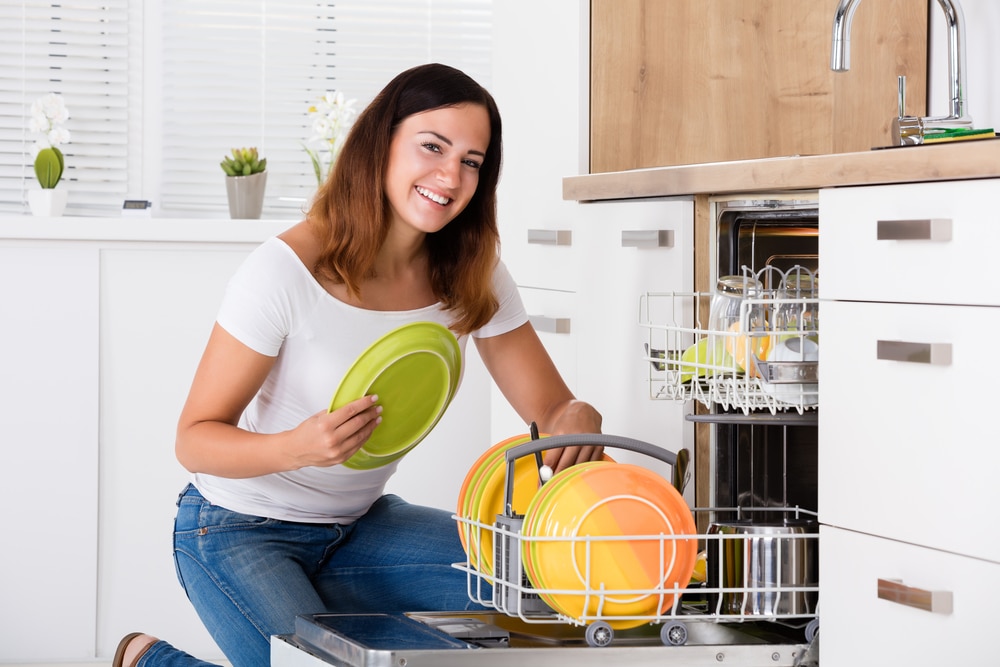
This might sound strange, but it really does work! Most modern dishwashers only use 12 litres of water, whereas hand washing uses between 60 and 70 litres.
However, this only works if you scrape your plates rather than rinse them. Like with a washing machine, you must only run the cycle when it’s full. If you’re a smaller household, it’ll may be worth investing in a smaller dishwasher.
Remember! When you’re buying new appliances, consider those that offer cycle and load-size adjustments, as they’re more water and energy efficient.
If you want to cut down on your bills further, check out our article on cheap, green cleaning products that you can make yourself, here.
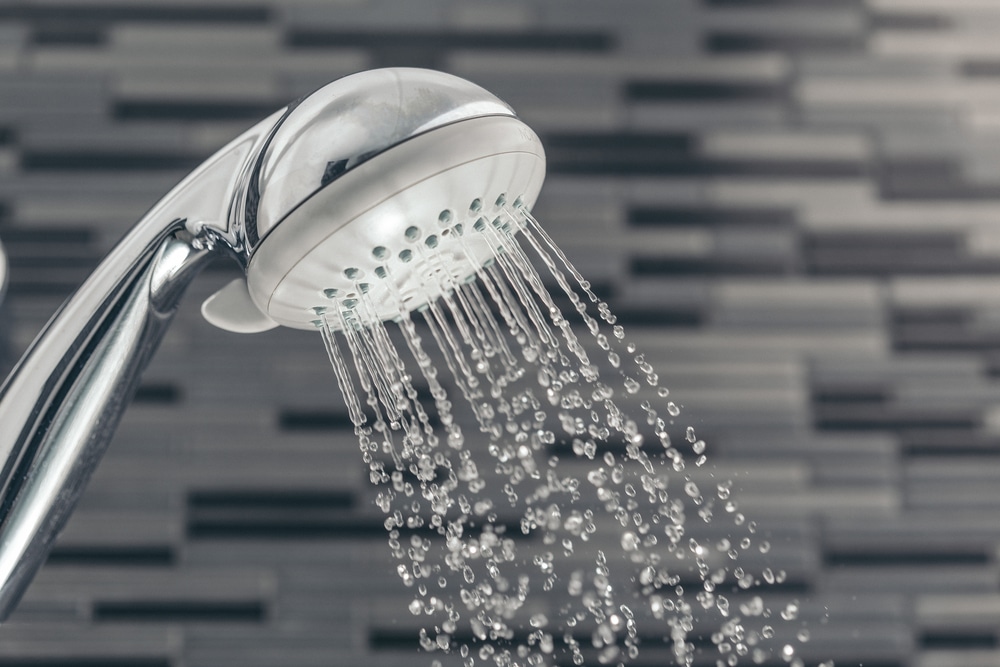
According to Waterwise, a short shower with an efficient shower head uses less water than a bath. But this is only the case if you take less than 10 minutes in there and don’t have a power shower. We recommend saving your singing voice for after your shower!
Try adapting your daily routine to fit in a shower rather than a bath. If you really can’t do without your bath, why not pour it an inch lower every time as it’ll save you around 5 litres. You could even use your bath water to water household plants, but make sure to keep your baths to once a week.
A staggering 80% of British adults are wasting water regularly.
Brits waste water while brushing their teeth and while they’re filling up the kettle. Leaving the tap on for a minute wastes 6 litres of water, so if you’re leaving it on while you brush you’re wasting 24 litres a day!
Luckily, these bad habits can be remedied, so you can save on water and cash.
If you have any persistently dripping taps, make sure you get them fixed. This can be a huge waste of water over time, costing you money if you have a water meter.
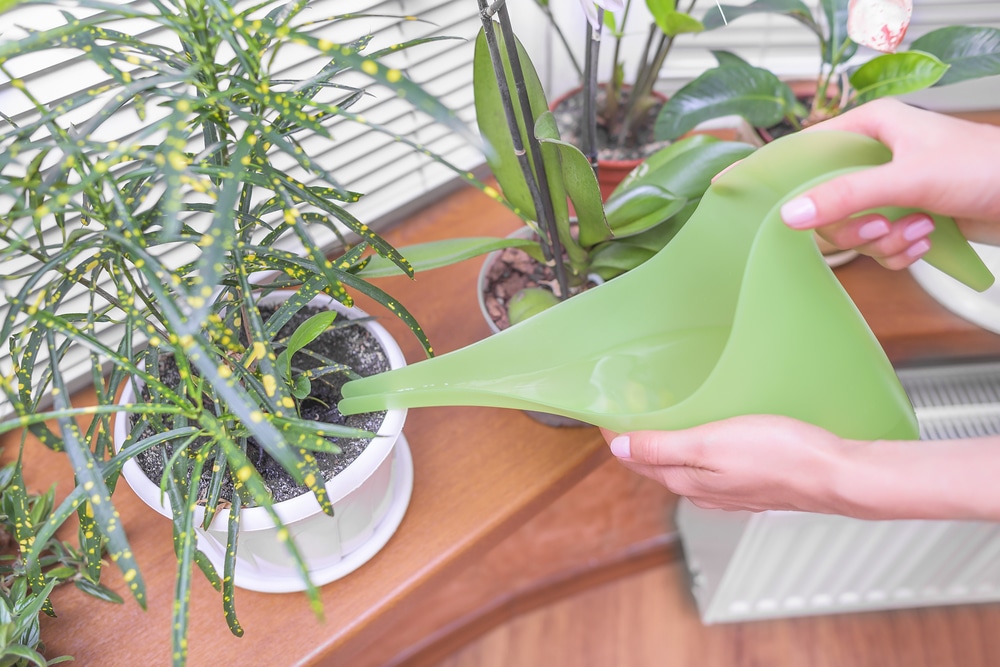
Wash your fruits and vegetables in a bowl of water instead of running water from the tap. You won’t notice the difference at all when you’re cooking. However, you’ll be able to re-use to water for house plants.
When you boil an egg, save the cooled water for your houseplants. The nutrients released from the shell will be good for them. Not only will you save water, but you’ll make your plants healthier too.
Equally, if you have a fish tank, the dirty water is rich is phosphorus and nitrogen, which are great for your plants!
If you’re a stickler for cold drinking water, this one’s for you! Rather than running the tap for a minute or so, store bottled water in the fridge. Refill your water bottles in the morning and store them in the fridge for a perfectly chilled beverage. This way you won’t have to run the tap for ages if you want to have a cold drink and you’ll be helping the environment too.
The Hippo water saver is a pack that goes inside your toilet cistern to help you save water.
Every time you flush, the Hippo can save up to three litres of water. This will save you approximately £20 a year. They cost £2 so they’re a great investment!
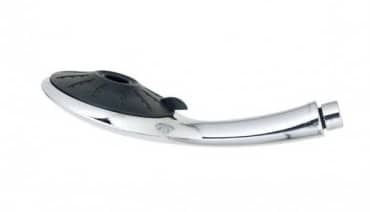
According to the Energy Saving Trust, by simply switching to an eco shower head you could reduce your water usage by an average of 74% and cut your hot water bills by as much as 40%.
You can get a PulseEco shower head for around £33 and it’s easy to fit onto your shower hose too. All you have to do is unscrew the shower head you do have and replace it with this new one
If you love your garden, get a water butt to use rainwater on your plants. If you don’t have lots of space for one, a rain chain and bucket is a good alternative. You could qualify for a reduced cost water butt through Save Water, Save Money.
Save Money, Save Water has a nifty questionnaire to help you show how much water you’re using – and how much you could save. Even better, you can choose from a range of free water saving devices, from shower timers to tap aerators and even strips to put in your toilet to make sure you don’t have a sneaky flush leak.

I have a Hippo water saver in my toilet cistern.
I also use grey water from washing-up to flush the toilet but not sure about using it to water my plants though!
I miss having baths as my flat only has a shower stall but I’m getting a bath installed this year.
I’ve learned a lot about water conservation from my volunteering with Don Catchment Rivers Trust, where we go out litter picking and doing river clean-up work. I really enjoy getting my waders on and going in the water!
Definitely think water meters can save you money.